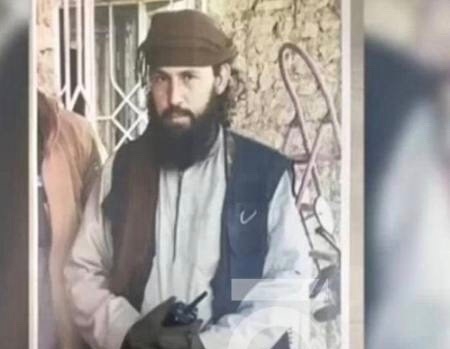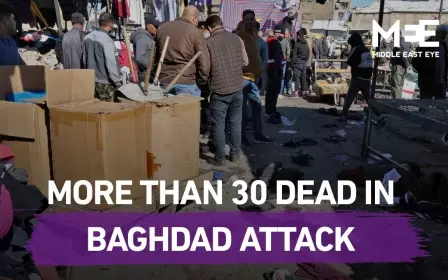Islamic State ‘deputy caliph’ killed in Iraq, PM Kadhimi says

Iraqi security forces have killed the country's top Islamic State (IS) commander, who had claimed to be the group’s “deputy caliph”, Prime Minister Mustafa al-Kadhimi said Thursday, a week after an attack in Baghdad killed more than 30 people.
"Our heroic armed forces have eliminated Daesh commander Abu Yaser al-Issawi as part of an intelligence-led operation," Kadhimi tweeted, using another name for IS.
Issawi, born Jabbar al-Issawi in Fallujah, had been described by experts as Iraq’s most senior IS official.
"If this is indeed confirmed, it's significant news, al-Issawi headed up IS's entire Iraq operation," tweeted Charles Lister, a director at the Middle East Institute think tank in Washington.
Lister, however, also cautioned that Iraqi security forces have made similar claims in the past that turned out to be false.
New MEE newsletter: Jerusalem Dispatch
Sign up to get the latest insights and analysis on Israel-Palestine, alongside Turkey Unpacked and other MEE newsletters
Issawi rose in the ranks after fighting with the militant faction in both Iraq and Syria, senior security sources told AFP.
He was killed on Wednesday in a remote area in the northern province of Kirkuk in an intelligence operation backed by the US-led coalition, the sources added.
"The coalition carried out five air raids, killing at least ten jihadists," one of the sources said.
Dismissals
Last week, IS claimed responsibility for a double suicide bombing, the biggest in Iraq for three years, that killed at least 32 people in a crowded market in the capital.
"We promised and fulfilled. I gave my word to pursue Daesh (IS) terrorists, we gave them a thundering response," Kadhimi wrote on Twitter.
Iraqi authorities said the attack was a possible sign of the group reviving after its military defeat in 2017.
"According to our long experience with terrorist attacks it is IS mostly, and it indicates a dangerous development in the capacity of such groups as it is targeting the capital now,” Ali al-Bayati, a member of the Iraqi High Commission for Human Rights, told Middle East Eye last week.
"What happened today indicates for sure the weakness in the security services and planning and intelligence efforts to prevent such acts."
After the attack, Kadhimi dismissed a number of security and military field commanders, as well as the forces securing areas of Baghdad, angering several major political forces.
Among the prominent names that were removed are: Lieutenant General Amer Saddam, deputy interior minister for intelligence affairs; Lieutenant General Jaafar al-Battat, commander of the federal police; and Abu Ali al-Basri, director-general of intelligence and combating terrorism at the interior ministry.
In Baghdad, Major General Bassem Majeed, director of the city’s intelligence and security operations department, was also dismissed.
Middle East Eye delivers independent and unrivalled coverage and analysis of the Middle East, North Africa and beyond. To learn more about republishing this content and the associated fees, please fill out this form. More about MEE can be found here.





